ICARDA AT EDF - THE ROAD TO COP27
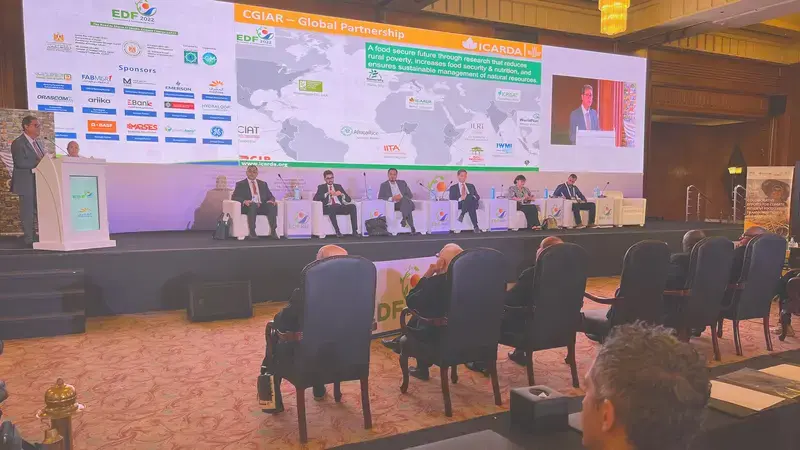
Under the auspices of H.E. Sameh Shoukry, Minister of Foreign Affairs and Egypt President-designate for the United Nations Climate Change Conference 2022 (COP27), and in cooperation with H.E. Yasmine Fouad, Minister of Environment in Egypt, the Arab Water Council (AWC) organized an “Environment and Development Forum (EDF)” between 11 - 13 September 2022 to bring together ministries, governments, regional and international organizations, global corporations, and research institutions to pave the road to COP27 which the Government of Egypt will host this November in Sharm el Sheikh.
September 12, 2022 - ICARDA, on behalf of CGIAR in collaboration with AWC and under the patronage of the Egyptian Ministry of Foreign Affairs, convened a plenary and a following technical session on partnerships and innovation to overcome global agriculture and food security challenges in the face of current shocks and intensifying climate change.
The first session was a plenary co-chaired by H.E Dr. Ali ElMoselhy, Minister of Supply and Internal Trade, Egypt, H.E. Dr. Hussin ElAtfy, Secretary General of AWC, and Mr. Aly Abousabaa, ICARDA Director-General and CGIAR CWANA Regional Director. The session explored how improved policies for environmental protection, water management, and climate-smart actions can urgently address emerging food, energy, and input challenges for food and nutritional security in the region and beyond.
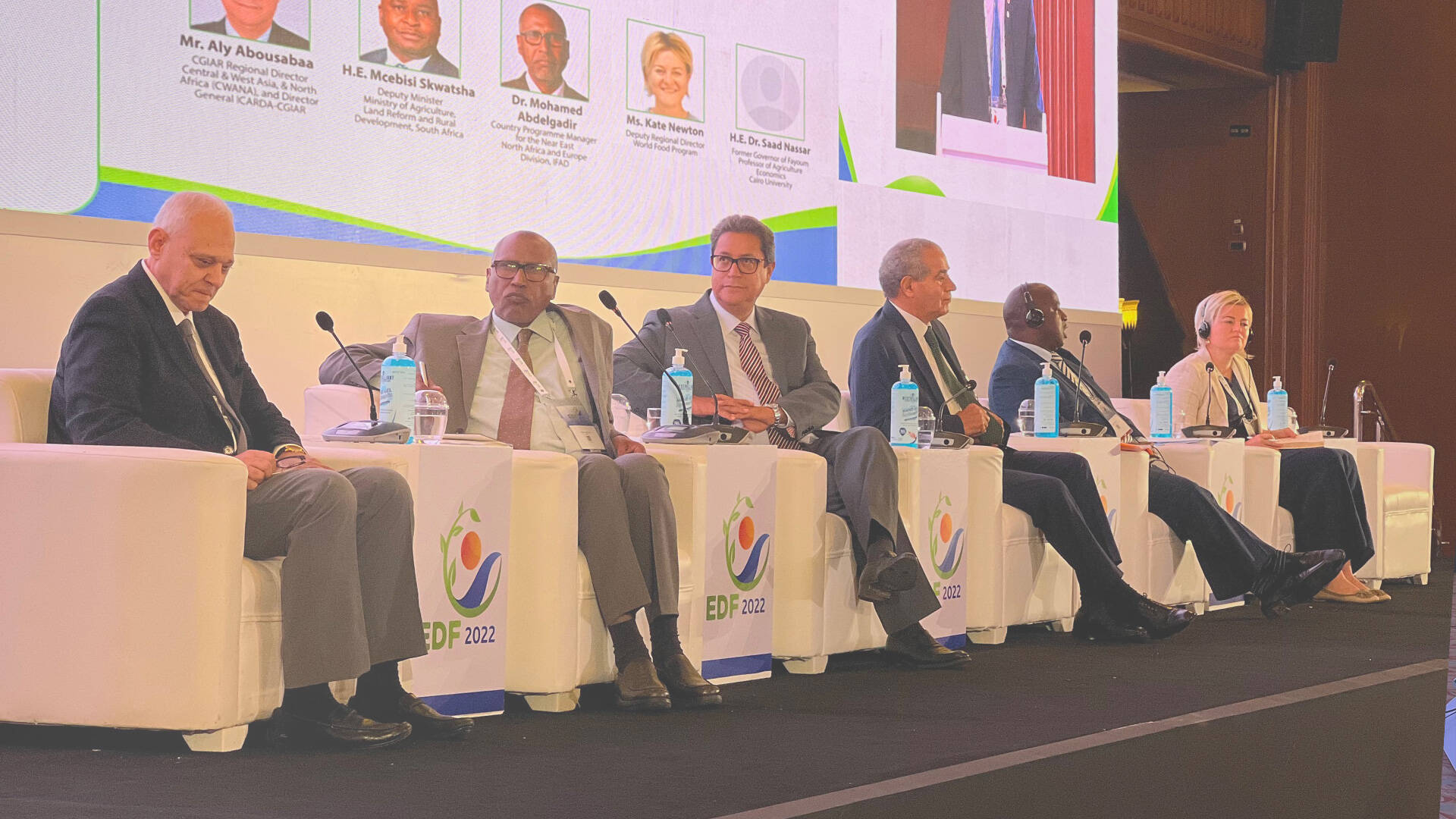
Speakers and expert voices from the audience also discussed other important policy themes, such as ways to engage more private sector interest and how to develop enabling environments and spaces for research for development and food systems innovation.
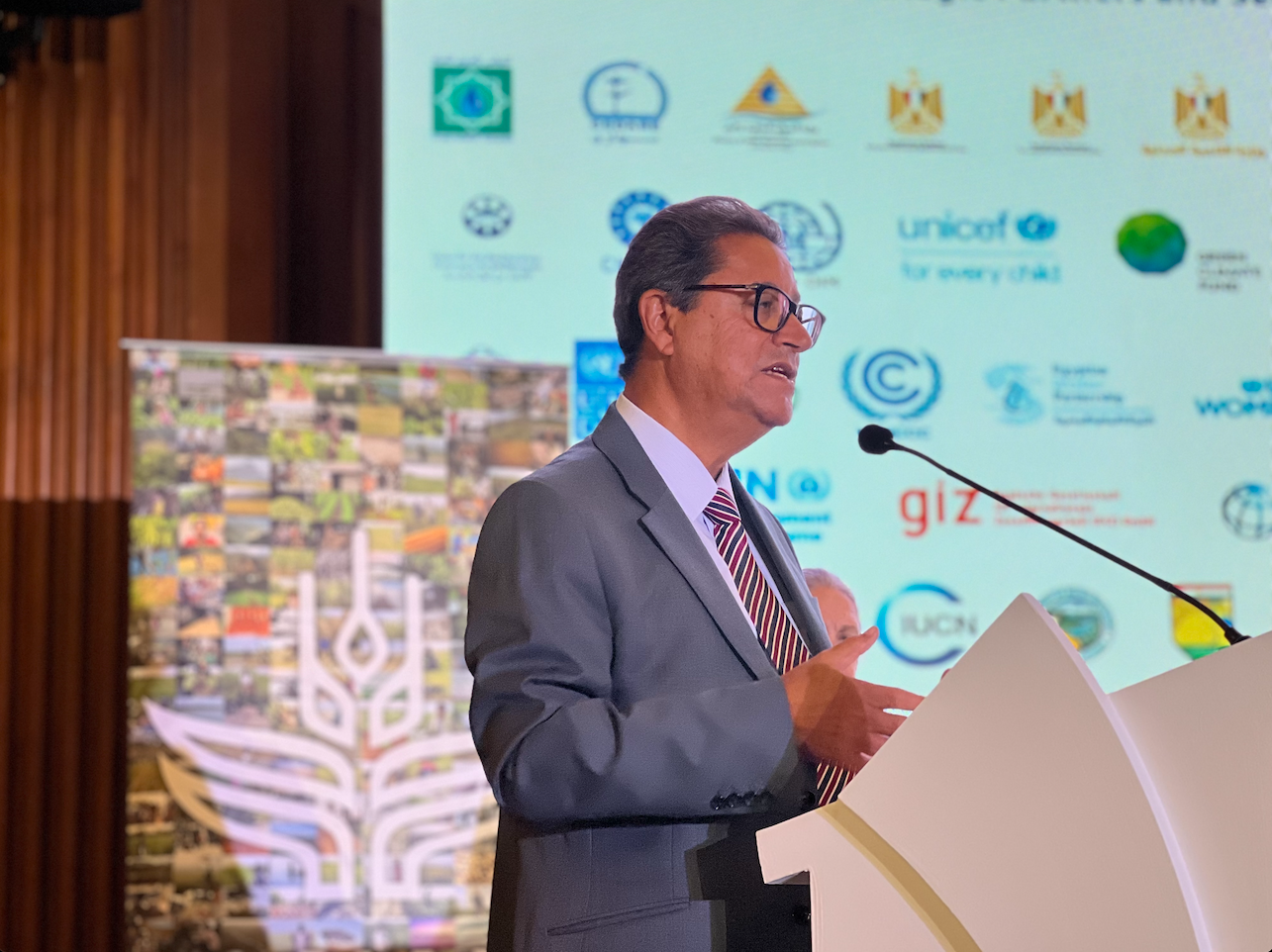
The discussions also highlighted the importance of inclusive and collaborative development and multi-stakeholder engagement in fostering knowledge dissemination, building capacity, and improving access to technology and finance for climate-smart policies and regulations.
Other significant policy issues, such as how to attract greater attention from the private sector and how to create enabling settings and places for Research-for-Development (R4D) and innovation in food systems, were also raised and discussed by the speakers.
---------------
Collaborative Efforts for Climate-Resilient Food Systems transformation in the Arab World
ICARDA, alongside sister CGIAR centers, IFPRI, IWIMI, and WorldFish then hosted a technical session to showcase important collaborative climate-smart agricultural innovations delivered within integrated packages that include the use of cutting-edge technology and capacity building.
Chaired by Aly Abousabaa, ICARDA Director-General and CGIAR CWANA Regional Director and moderated by Roula Majdalani, Climate Change Advisor, ICARDA, the session also highlighted the importance of the early inclusion of stakeholders and partners in knowledge-sharing and design to ensure the identification of existing regional innovation and approaches.
The session aimed to:
-
Highlight existing and potential innovations and approaches toward climate-adapted food systems in the region
-
Improve understanding and collaboration among the region’s stakeholders
-
Highlight the importance of inter-country collaboration and showcase collaborative efforts in technology, resource mobilization, and policy interventions.
-
Highlight the importance of funding for research for development
A key topic was how partner-led research ensures the development of demand-driven solutions and policy instruments that raise adoption levels of new solutions and especially allow entry for women and youth.
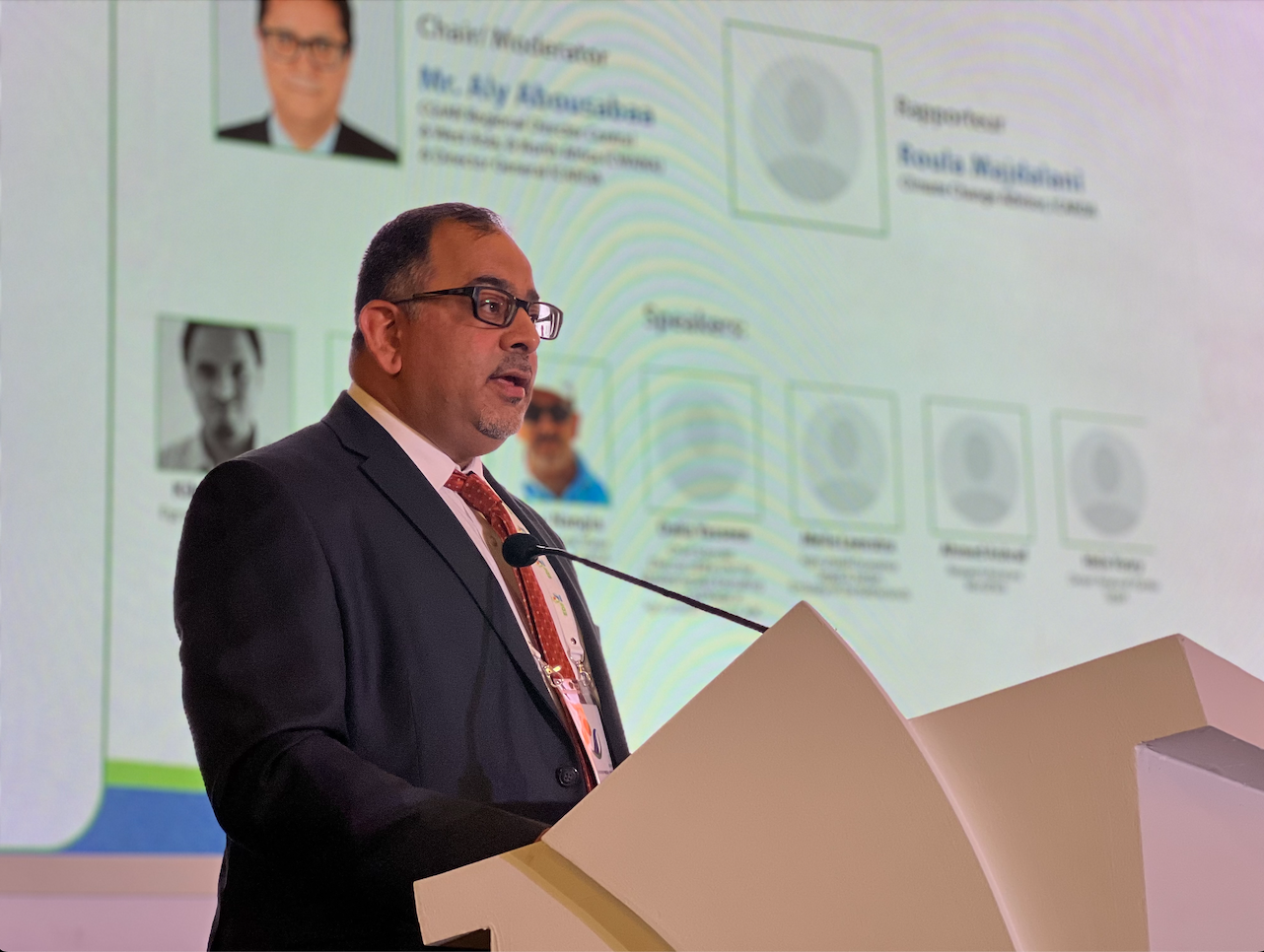
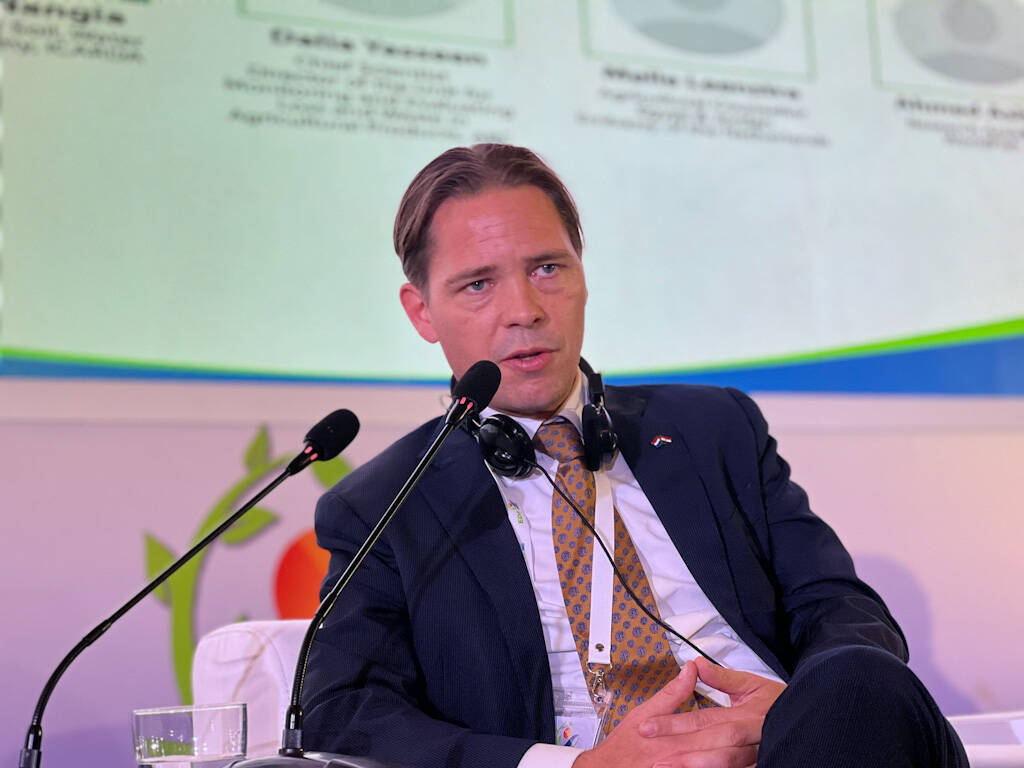
The speakers, Kibrom Abay, Egypt Country Program Leader, IFPRI; Youssef Brouziyne, Egypt Representative, IWMI, & CGIAR Water Systems Lead, MENA; Vinay Nangia, Team Leader Soil, Water, and Agronomy, ICARDA, and Ahmed Ashraf, Research Assistant, WorldFish, demonstrated CGIAR collaborative efforts for food system transformation in the region followed by a panel discussion along with Melle Leenstra, Agricultural Counsellor Egypt & Jordan, Embassy of the Netherlands, and Dr. Hala Yosry, Desert Research Center, Egypt.
Conclusions, Recommendations and/or Key Messages:
-
Investments must address the Nexus between finance for ‘short-term mitigation’ vs early investment in long-term ‘sustainable adaptation.’
-
Current innovations are not a ‘magic-wand’ – they are a technology that still needs to be developed and forever updated to match changing needs.
-
New approaches must be context-specific ‘appropriate’ technology.
-
A true sense of collaboration is a framework where all stakeholders are not in competition. Time is running out, and self-interest must be overcome.
-
With climate change predicted to worsen, a key development is needed not just in climate-smart ‘products’ but also in ‘preparedness’ frameworks such as early warning systems.
